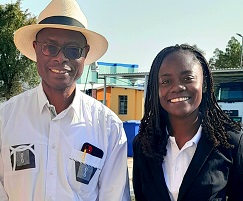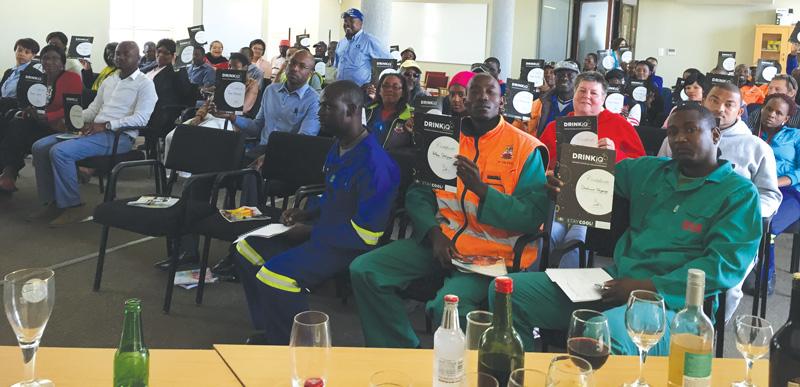
German support protects Lüderitz transition from small town to industrial metropolis

The German Government will support the planning of the green hydrogen sites near Lüderitz with approximately N$121 million, following the conclusion of the negotiations on joint development cooperation between Namibia and Germany.
Some of the funding will be employed to train specialists in the renewable energy sector.
The urban planning assistance for the hydrogen plant forms part of an allocation of more than N$1 billion from the German Government for sustainable urban development, vocational training, climate change adaptation, as well as the protection of biodiversity and improved water supply.
German Development Minister, Svenja Schulze, said “Namibia has huge potential for renewable energy and has recognized that it can write a success story in expanding green hydrogen production. We will support Namibia in this. Sustainable urban planning in the vicinity of the future facilities is an important part of our cooperation. Above all, sustainable means involving the local population in the planning. They have to be able to have a say, because it’s about shaping their country.”
Namibia has already set the course for establishing green hydrogen production. The hub of the pilot phase will be Lüderitz where many new jobs will be created. But the challenges for the town with around 12,000 inhabitants are also great.
Lüderitz already has to prepare itself for a strong influx of industrial workers and employees in the services sector. To ensure that rapid growth does not lead to uncontrolled urban sprawl, it was agreed during the government negotiations to support Lüderitz in climate-neutral and participatory urban planning.
Private investors will also be brought on board to speed up the construction of new apartments, schools, water pipes, sanitary facilities, roads and public places. The German Namibian development cooperation also pays particular attention to the expansion of vocational training to meet the growing need for skilled workers, for example in the production of green energy.

From the left, Mr James Mnyupe, Presidential Economic Advisor and Commissioner for Green Hydrogen; Ms Wilhencia Uiras, Executive Director in the National Planning Commission; Ms Marieke Wagenhäuser, Senior Policy Officer at the Division “Southern Africa, South Africa” of the German Federal Ministry for Economic Cooperation and Development and Mr Alois Schneider, Head of this division.












































